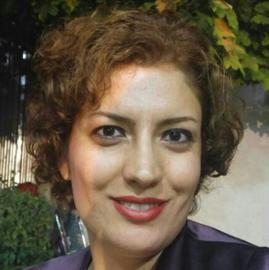Authorities continue to expel Baha’i students from universities in Iran, despite international condemnation and calls for their right to pursue higher education to be upheld. In August 2016, 129 Baha’i students were informed that their university files were “incomplete” — meaning they could not pursue further education.
In late December 2016, Nazanin Nikouseresht, a freshman studying at the Literature and Human Sciences Department of Shiraz University, was expelled and banned from continuing her education just two and a half months into her English Literature course.
“At the end of the class on Wednesday, 28 December, I went to the university website to check my status, and I noticed that there was nothing on my course list,” Nikouseresht told IranWire. “My classes had been designated at the beginning of the semester, and I was attending them. So I assumed there was a problem, and went to the head of the Office of Academic Affairs for the Department. He told me the reason my course list had been removed was that a letter had been sent by the Director of the University Academic Affairs to the Department of Literature and Human Sciences three days before, ordering a stop to my education in the university.”
The letter, signed by Shiraz University’s director of Academic Affairs, Dr. Mohammad Ali Masnadi Shirazi, stated that Nazanin Nikouseresht should be prohibited from continuing her education. Shirazi is also director general of the Central Committee for the Selection of Students.
To follow up the matter, Nikouseresht went to university officials, who told her the following: “In a letter dated December 12, 2016, the committee for the selection of professors and students had conveyed to the president of Shiraz University that six students had to be expelled from that university, one of them being Nazanin Nikouseresht.” The letter also mentioned that these students were prohibited from pursuing further education due to their lack of general competency. Another official told Nikouseresht that, because officials merely implement decisions made by authorities, she would have to go to the Committee for the Selection of Professors and Students in Tehran for further information and to follow up the matter in full. Officials also told Nikouseresht she was not entitled to a copy of the letter because it would be inappropriate since the names of the other five expelled students were also mentioned in the letter.
Nazanin Nikouseresht is one of 129 Baha’i citizens who were informed in August 3016 that they had “incomplete files” at the time of registration. But Nikouseresht said she had actually been able to register and start her university education, despite the matter of her incomplete file. “Even though the website of the Educational Measurement and Evaluation Board indicated that I was prohibited from university education due to an incomplete file, I was quite eager to know the result of the entrance exam and the university I had been admitted to,” she said. “I went to the Educational Measurement and Evaluation Board a number of times, and they did not respond to me. As a result, I went to the university that had been my first choice, Shiraz University, and realized that my name was on the list of newly-admitted students. I joyously registered with English Literature as my major, the same as other newly-accepted students. I selected my courses, obtained my student identification card and number and started classes with other students in the month of September, until on December 28, when I realized my courses had been dropped.”
The website of the Educational Measurement and Evaluation Board lists the names of Baha’i students who have incomplete files. These students are unable to see the results of their exams. The names of these individuals are also sent to the relevant universities. “Using this method, the Educational Measurement and Evaluation Board hides the entrance exam results from admitted Baha’i students, and prevents their registration and education,” Nikouseresht said. “On the other hand, the board can claim that the Baha’i citizens are admitted into universities and higher education institutions, the same as anyone else. The names of admitted Baha’i students are included in university records.” But the reality is that, contrary to official university records, Baha’i students are then banned from continuing their education.
This tactic is widespread. However, Nikouseresht also said that not all universities use it, or are necessarily aware that Baha’is are routinely removed from education. “This year Payame-Noor University sent a message to students who had been admitted, calling them in for registration. This message was also sent to the Baha’i applicants to the university.” She said that although these Baha’i students had incomplete files, the fact that they had been sent instructions for registration indicates that the relevant department was not aware of the policy to exclude Baha’is from further education. In some cases, this suggests, Baha’i students are able to study — although when university or department officials do find out about this widespread ban, they may implement their own bans.
In October, Mona Houshmand, a freshman Baha’i student, was expelled and prevented from attending Bojnord School of Architecture.
visit the accountability section
In this section of Iran Wire, you can contact the officials and launch your campaign for various problems

























comments